How to get rid of ground bees humanely – to protect these pollinators
Learn how to move ground bees on from your yard without harming these precious pollinators

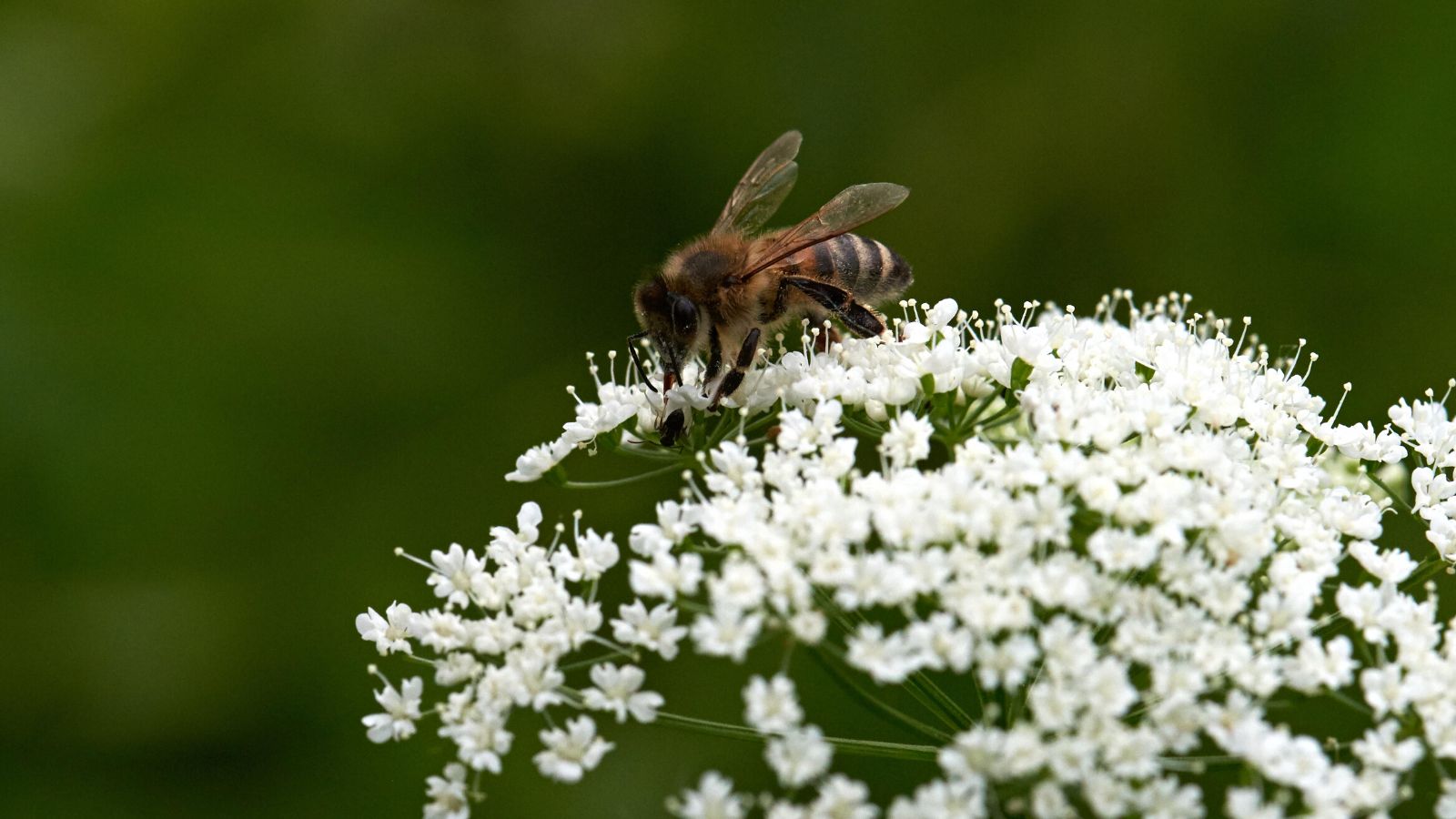
As the warmer weather brings out all sorts of garden insects and wildlife, you may be wondering how to get rid of ground bees humanely.
'Ground bees are harmless creatures that can be hugely beneficial to your garden ideas, and it is more apt to be curious about ground bees than afraid of them,' explains Rachel Crow, garden editor at Homes & Gardens. 'However, if you are not a fan of these flying insects or are concerned that their burrows are disrupting your backyard landscaping ideas, there are several ways to move them on from your garden without causing them harm.'
Here we have compiled some of the best methods for removing ground bees, from watering your garden to trying scented deterrents.
How to get rid of ground bees
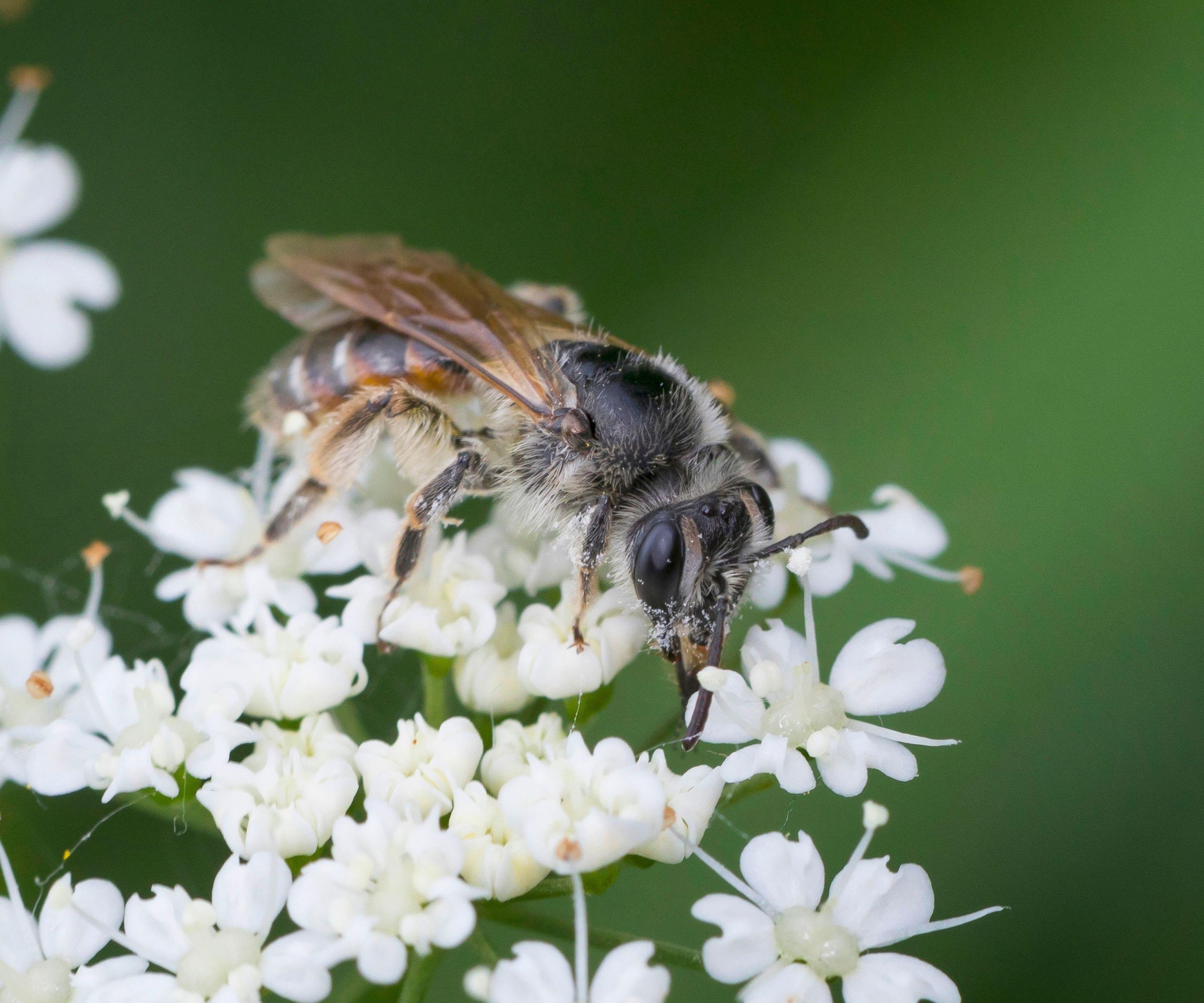
There are a few methods to get rid of ground bees without harming them. In fact, due to their docile nature and positive impact on the environment, lethal methods of removal are strongly advised against.
'It is also much safer to try to move ground bees on yourself than attempt to exterminate them. When attempting the following methods, it is recommended to do so at night whilst the bees are asleep. Although male ground bees do not have stingers, they may still swarm you if you are perceived as threatening – it is important to remember that the queen bees can sting, and might do so to protect their threatened young,' warns Rachel.
If you have a bee allergy, ask somebody else to attempt these methods on your behalf.
1. Block up burrow holes
Blocking nesting holes in your lawn will discourage ground bees from returning to their established burrows. To block underground nests place heavy items such as bricks over the small mounds for a week or more to encourage the bees to move on.
Design expertise in your inbox – from inspiring decorating ideas and beautiful celebrity homes to practical gardening advice and shopping round-ups.
2. Dampen your soil
Ground bees thrive in dry, sandy soil that has little vegetation such as grass and weeds. An effective way to discourage ground bees is by keeping your lawn damp through regular watering or sprinkler systems. You may need to water your lawn a few times for this method to have any effect, particularly in hotter, sunnier climates.
3. Seed you lawn
Seeding your sparse lawn, as well as adding compost or mulching your soil will also discourage ground bees. The roots of vegetation make it harder to burrow, while longer grasses can make it difficult to locate or access burrow entrances.
4. Use natural scents to deter ground bees
Using cinnamon in soil or spraying a vinegar-water solution (a common homemade bug spray made from equal parts water and white vinegar) can deter bees due to their strong scents.
Apply these scents around the ground bees burrow holes for the best effect.
What are ground bees?
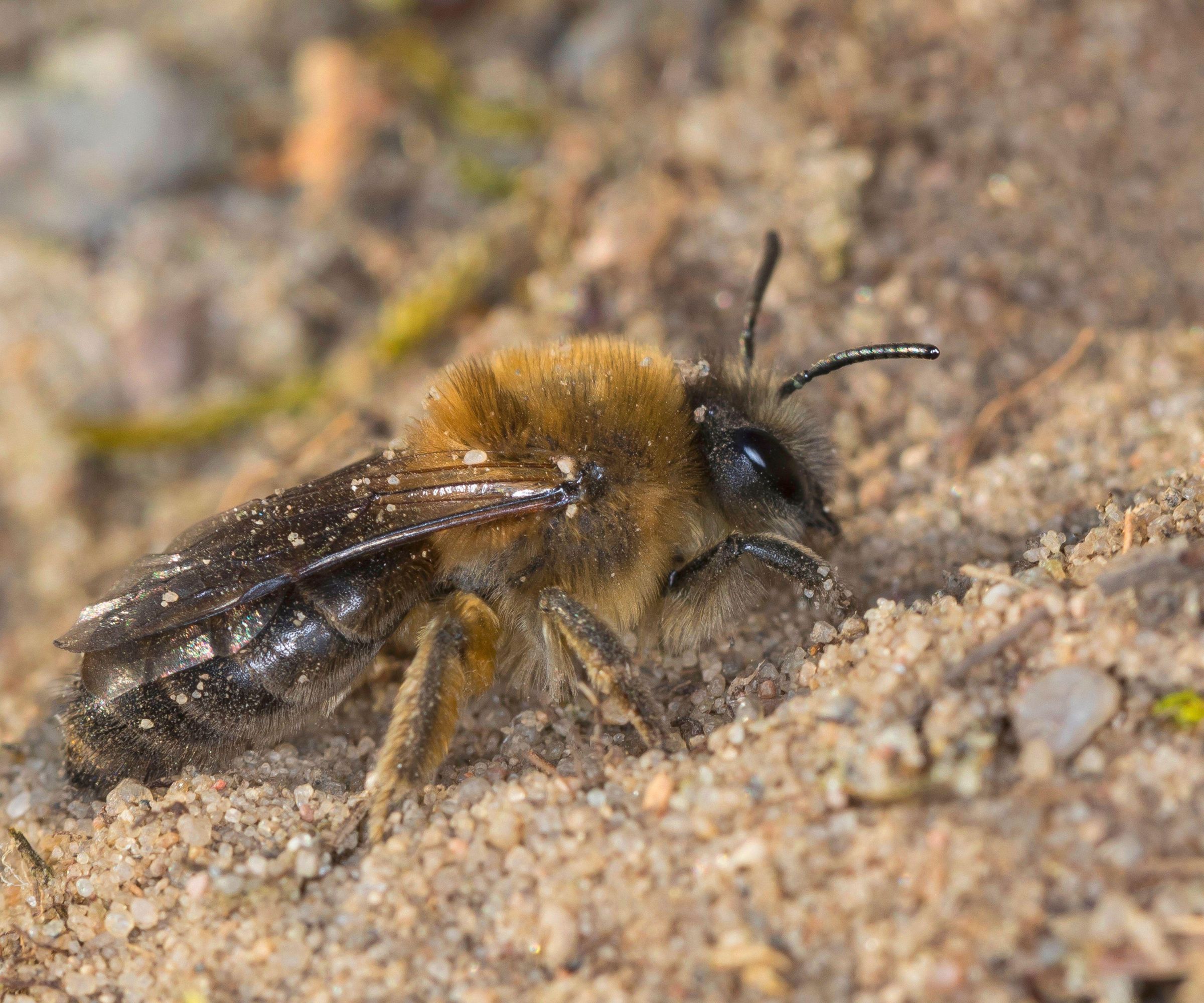
Ground bees are also commonly known as mining bees or solitary bees, and the name encompasses multiple varieties that all come in different sizes and colors. This species creates vast underground galleries as opposed to hives and, in comparison to bumble bees, ground bees are not territorial and are rather docile and unlikely to sting.
While male ground bees may appear aggressive, they lack a stinger and are therefore harmless. Similar to other bee species, ground bees are avid pollinators and spend many of their waking hours in search of nectar and pollen.
How do you know if you have ground bees?
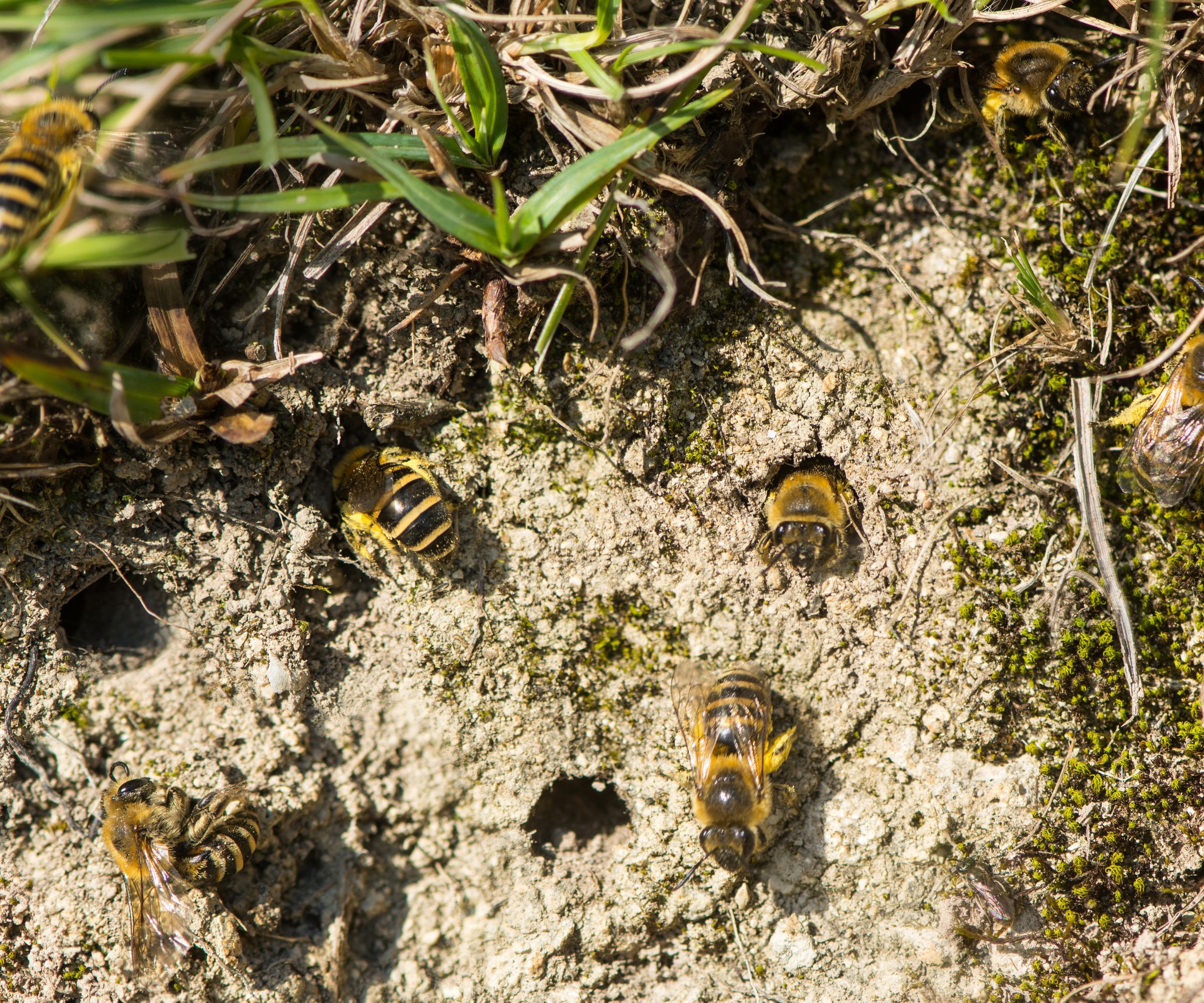
You can spot ground bee burrows from above ground. Ground bees leave behind multiple small burrow entrances in the shape of small mounds, a couple of inches across, often with a quarter-inch hole in the center. 'Unlike getting rid of carpenter bees and the damage they cause to wooden structures, these entrances do not damage your soil, so there is little reason to flatten them or fill them in,' Rachel says.
Ground bees are not the same as yellow jacket wasps which also nest in the ground soil, and their holes are noticeably different.
The benefits of ground bees
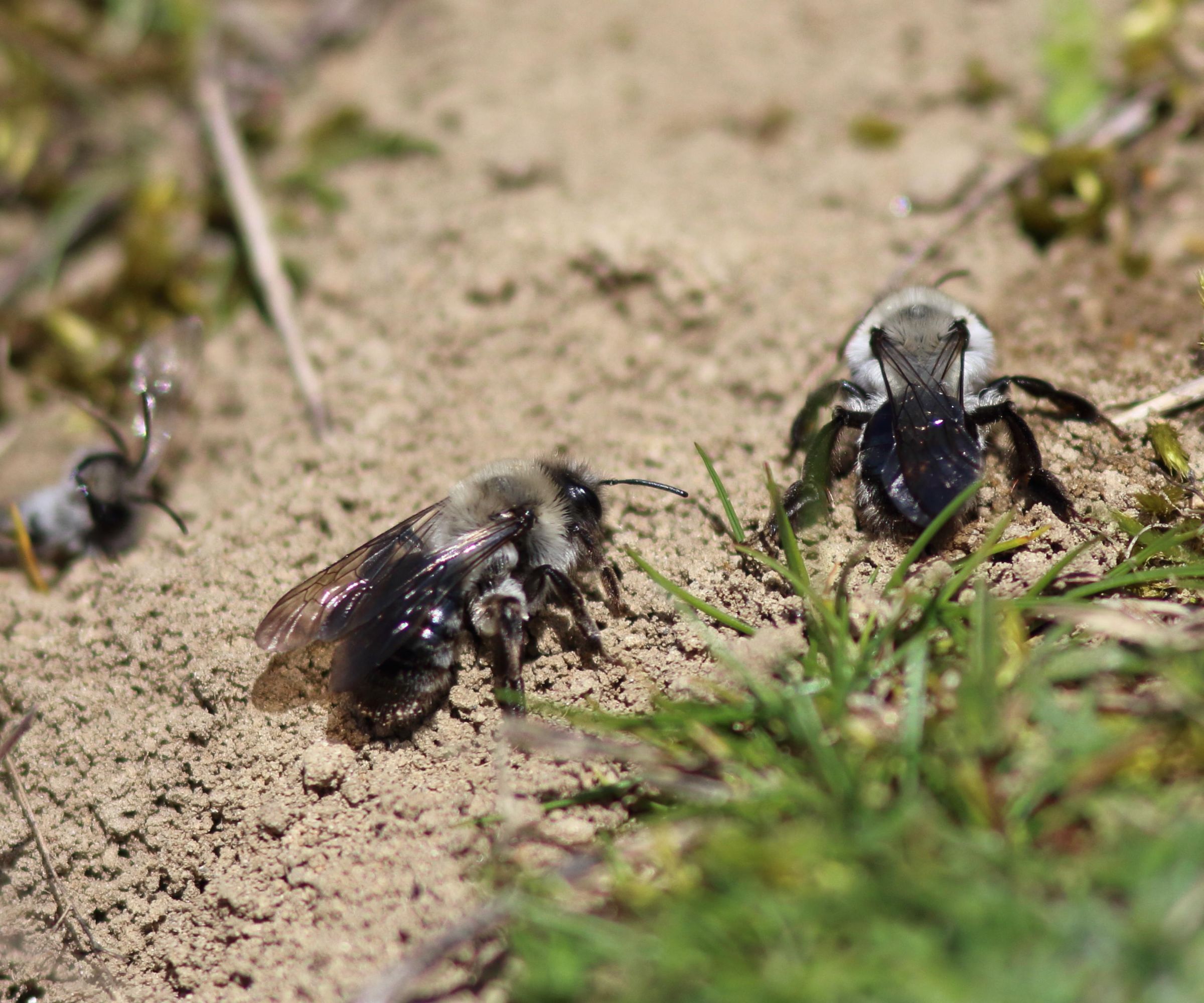
Although ground bees do not produce honey, they are a precious pollinator species and can be great neighbors for your wildlife garden ideas and vegetable garden ideas.
Ground bees are proven to be better pollen distributors than their cousins the honey bee which can lead to more fruit and healthier biodiversity. You may even find male ground bees asleep in closed-up flowers overnight. What’s more, unlike beekeeping for beginners, ground bees do not require any specific specialized equipment to keep happy in your garden.
How long do ground bees stay around?
Ground bees usually stay around for around four to six weeks. After emerging in early spring, the bees will stick around throughout the warmer months. As fall and winter approach, the queen bee will enter hibernation underground and the worker bees will die out. The queen bee will likely awaken the following year and begin to reproduce in the same spot.
If you want to keep your ground bee friends around, consider planting flowers that attract bees, or other plants for pollinators to provide them with the best conditions.
Why do I have ground bees?
Ground bees are attracted to areas that have favorable soil conditions. The best way to discourage ground bees from settling on your property is to change the soil conditions.
Ground bees prefer areas with sandy, well-drained soil and limited vegetation. Mulching the surface of your soil, watering, or seeding your lawn can all discourage ground bees by making your yard unattractive to colonies.

Chiana has been at Homes & Gardens for two years and is our resident 'queen' of non-toxic living. She spends most of her time producing content for the Solved section of the website, helping readers get the most out of their homes through clever decluttering, cleaning, and tidying tips. She was named one of Fixr's top home improvement journalists in 2024.